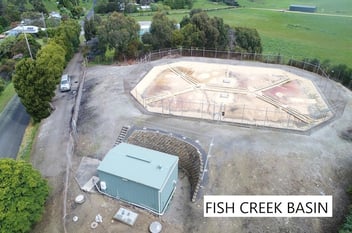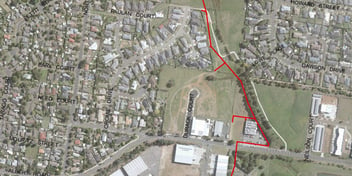Prize-winning device creates drinking water from thin air
A low-cost, energy-efficient system that harvests freshwater from the air by creating artificial clouds inside a shipping container has won the Water Abundance XPRIZE.
The two-year development competition was sponsored by the Australian Government’s aid program and India-based Tata Group, with the aim of finding the best system of atmospheric water generation, where water is drawn from the air via condensation.
To be in the running for the US$1.75 million prize, teams had to design a device that could extract a minimum of 2000 litres of water per day from the atmosphere using 100% renewable energy.
The device also needed to be cost effective, with a combined operating and capital cost of no more than 2 cents per litre.
The winning team, Skysource/Skywater Alliance, was led by US architect David Hertz and beat out 97 other teams from 27 countries with its WEDEW system.
The system, which stands for wood-to-energy deployed emergency water, combines hot and cold air to create condensation.
It is made up of two devices housed in a shipping container: Skywater, a generator that cools warm air and stores the resulting condensation inside a tank; and a biomass gasifier, which uses materials including wood chips and coconut husks to produce energy.
According to the team, the Skywater machines are able to reduce water vapour to liquid without a gain or loss of heat.
“The higher the humidity and temperature, the more water can be produced,” the company said.
“After condensation, the water is filtered and treated with ozone to enhance its taste and prevent potentially hazardous microorganisms from forming. The water can then be used or stored for future use.”
Hertz first started harvesting water with a small machine capable of producing about 500 litres per day, which he gave to homeless people near his business in Venice Beach, California.
He developed the idea further after learning about the XPRIZE, including adding the biomass power aspect.
In areas where biomass isn’t available, Hertz said the system could be run on solar power. In either case, it can be deployed quickly.
He said he will use the prize money to get WEDEW systems into regions hit by natural disasters, drought or those with a shortage of clean water.
“There are no restrictions whatsoever on how [the money] is used,” Hertz told Associated Press.
“But [my wife] Laura and I have committed to using it all for the development and deployment of these machines, to get them to people who need the water most.”


